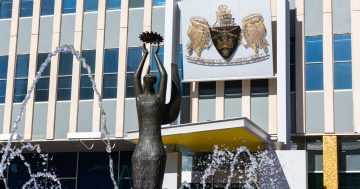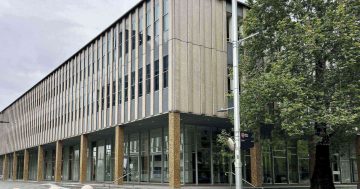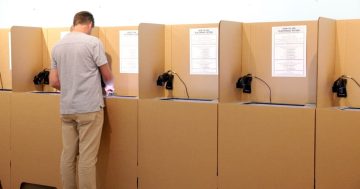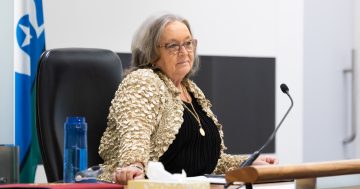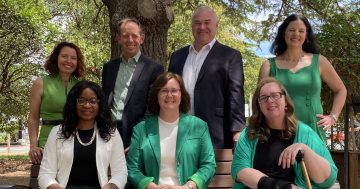
The 2016 ACT election will be the most significant election since self-government.
The increase from 17 MLAs to 25 should mean that our local communities are better represented in the Assembly. With five electorates of five members, each electorate now mostly lines up with Canberra’s regions.
Under the current three electorate system, the larger electorate sizes means that your elected representatives may have had little or no awareness of your local community’s needs. Molonglo was particularly problematic in this regard. Prior to the election of Meegan Fitzharris in 2015, no elected representative of Molonglo had been a resident of Gungahlin.
It’s tempting to just focus on the practicalities of fitting eight more members into the Legislative Assembly, but this would be a wasted opportunity.
After 25 years of self-government, it is an opportune time to rethink how we expect our Assembly to operate.
At the moment there is an ivory tower mentality held by many in the Assembly. Uniquely amongst parliamentary systems in Australia, members are not allocated local electorate offices. This means that MLAs and their staff can work in the Legislative Assembly every day and virtually never see their actual electorates.
Organisations regularly come into the Assembly to meet with MLAs. However, individuals rarely do and mostly communicate with MLAs by mail or email.
Without a local office, direct engagement with their constituents becomes almost entirely at the discretion of the local member. Mary Porter has set the benchmark for other MLAs, being well known for her mobile offices that regularly appear throughout her electorate. Unfortunately not all MLAs are as dedicated to these engagement activities.
Perhaps we should investigate a more permanent solution to encourage our MLAs to venture out of Civic Square. We don’t have to adopt the most expensive option of funding an office for each MLA though.
Why not make a shared space available in a town centre for the members of each electorate? The ACT Government already has property in just about every suburb, so the cost should be minor.
Access to a dedicated place to hold forums and hear the needs of their constituents would increase the accountability of MLAs and encourage them to work cooperatively on important local issues.
Imagine if a local meeting attended by the five electorate MLAs was held every month, either on a prearranged topic or on topics contributed by constituents. The goal would be to run the meeting as a productive, non-adversarial community forum with a minimum of formal structures such as motions and votes.
Alternatively, MLAs could be rostered to attend a community meeting that rotates through each of the 15 or so suburbs in their electorate. It would undoubtedly be a good thing for our MLAs to visit each suburb that they represent regularly.
Increasing the engagement of our MLAs with their electorate might mean a rethink about our community councils as well. Currently community councils are subsidised by the government in return for facilitating consultative meetings on a range of issues. But there’s no reason why these meetings couldn’t be hosted by our MLAs instead. Indeed, since they are our formally elected representatives and spokespeople it makes more sense for them to take on this role. Hearing complaints about specific roads, footpaths and other local issues would give them a greater awareness of community sentiment on issues and keep them better engaged with the population generally.
What do you think? Do our MLAs need shared or individual electorate offices? Should we have more opportunities to engage with them? Are our community councils outdated?












